What Are the Established Health Benefits of Onions
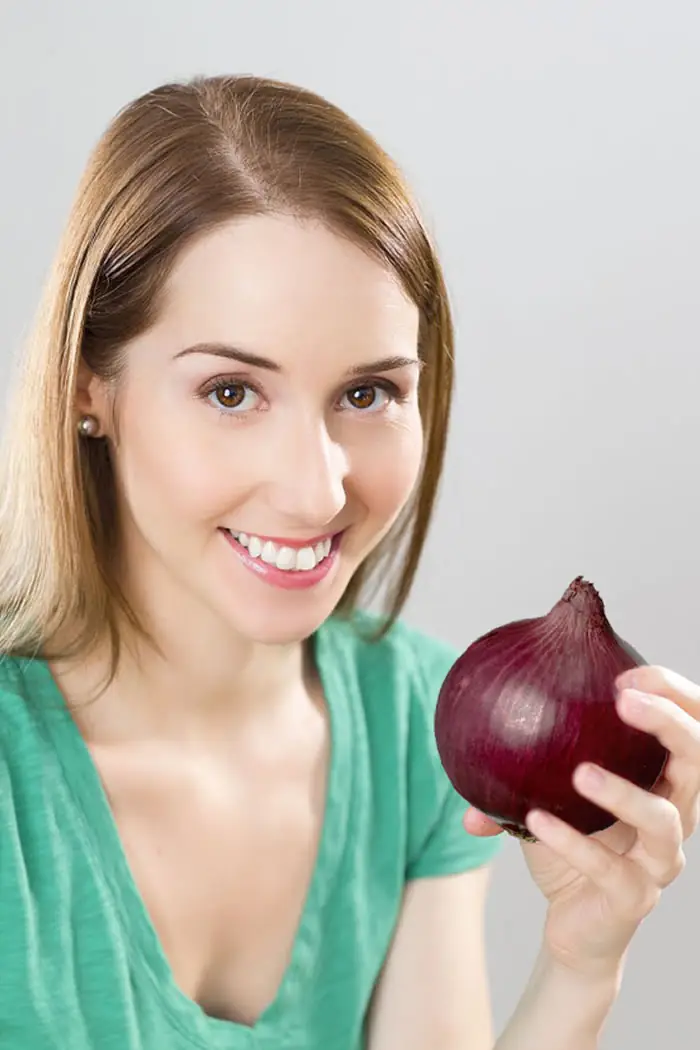
An enormously popular vegetable with a strong pungent taste, onion can also be used to promote wellness. What are the health benefits of onions? What bulbs to choose, red or yellow ones? Read on, and you will find detailed answers to all these and numerous other questions.
What Are the Nutritional Benefits of Onions
As water constitutes almost 90% of the mass of the bulbs, it is really not a very good idea to fully rely on onions to get all the vitamins and nutrients you need. Still, the bulbs of this plant are moderately rich in vitamin C (ascorbic acid) as well as vitamins B6 (pantothenic acid) and B9 (folate).
What’s more, they also contain measurable quantities of manganese and phosphorus. As for its energy content, the plant contains 40 kcal per 100 grams, which is not a very high figure.
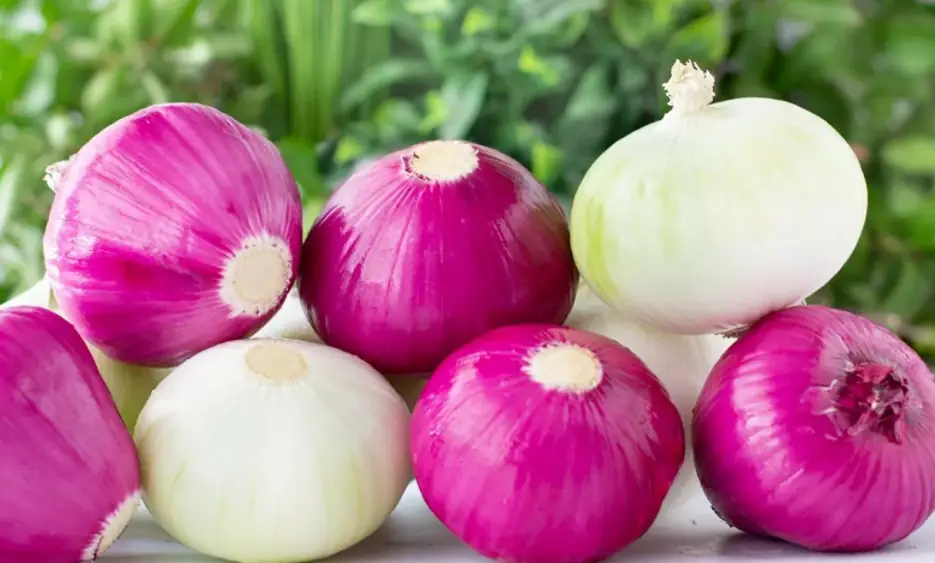
What Are the Comparative Health Benefits of Eating Red & Green Onions: Different Flavonoid Content
Flavonoids, biologically active compounds that contain phenol units, are truly abundant in onion bulbs of any color. Still, it is red-colored bulbs that are the richest in flavonoids (270-1187 mg per kilogram), and widely-known yellow bulbs take second place (415-1917 mg per kilogram). The almost uncolored white onions, as well as scallions (also called spring or green onions), have the lowest flavonoid content.
What’s more, red bulbs are especially rich in anthocyanins — plant pigments that belong to the flavonoid family and have strong antioxidant properties. Thus, if you want to get as many natural antioxidants as possible, choose the red variety.
Although these findings may seem counter-intuitive, a 2018 study demonstrated that the flavonoid and antioxidant content of the bulbs increases with aging. Onions that are at least three months old contain considerably greater quantities of bioactive compounds: don’t be in a hurry to use all the bulbs you can see in your pantry.
What Is Known About the Health Benefits of Onions: Medical Research
Flavonoids (including a potent antioxidant called quercetin) and other bioactive compounds make onion bulbs more than mere food: if you regularly use onions in your diet, your health can noticeably improve. Here are the results of numerous clinical studies on the benefits of this plant to health:
May Lower Blood Pressure and Reduce Cholesterol
In a 2015 study people with obesity used onion skin extract powder that is rich in quercetin for 6 weeks. A small yet statistically significant systolic (maximum during a heartbeat) blood pressure reduction was observed. In a 2014 study patients who followed a “high-onion” diet (40-50 grams of raw red bulbs two times a day) demonstrated significantly decreased levels of total cholesterol.
What’s more, in two recent studies it was demonstrated that food with high anthocyanin content (like red onion bulbs) could lower the risk of heart attacks. While additional research is required, the beneficial effect of onions on blood pressure and cholesterol levels can help reduce your risk of heart disease.
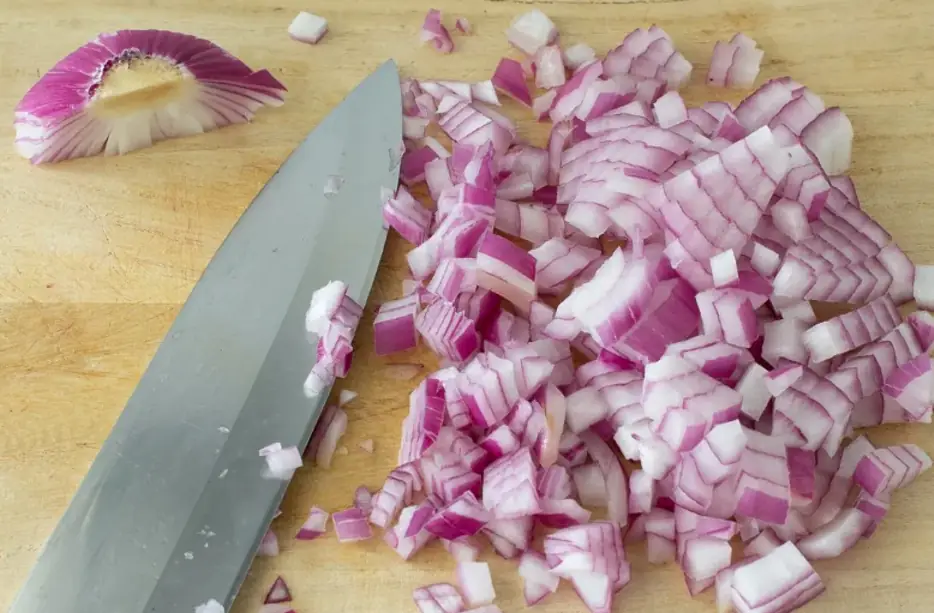
May Reduce Risk of Some Types of Cancer
A group of researchers conducted two meta-analyses of the anti-cancer properties of plants from the Allium genus (that, besides onion, includes garlic, shallot, and similar plants). They established that a high intake of allium vegetables is likely to reduce the risks of gastric and colorectal cancers. In two 2016 studies it was demonstrated that onionin A (a sulfur-rich compound derived from the bulbs of the plant) can slow the spread of cancer and slow down the development of tumors.
May Reduce Blood Sugar
In a study on diabetic rodents it was found that onion extract administered for 28 days can improve the levels of fasting blood glucose as well as increase glucose tolerance. Even more important, a 2010 study on human patients with type 1 and type 2 diabetes determined that high daily quantities of red onion (100 g/day) can significantly reduce fasting blood glucose levels.
May Reduce Bone Loss
Menopausal women often suffer from bone loss. Onion bulbs can be used as a supplementary treatment for this condition. In a 2009 study it was demonstrated that women who consume onions at least once a day have a bone density that is 5 percent greater than those who consume them only once a month. What’s more, in a 2016 study women who drank onion juice (100 ml) once a day for 8 weeks demonstrated improvement in bone mineral density.
Thus, if you enter the menopause transition, it might be quite reasonable to add this plant to your daily ration.
Kill Dangerous Bacteria
In two in vitro (i.e., in a test tube or another artificial environment) studies of the antimicrobial properties of onion bulbs it was found that this plant demonstrates significant antibacterial activity against Staphylococcus aureus and Bacillus subtilis. What’s more, in a 2010 study extracts from both red and yellow plant varieties were found effective against Vibrio cholerae (although the red variety was found to be three times as potent as the yellow one).
While onions alone are unlikely to treat any serious infection, you can use them (along with closely related garlic cloves) to prevent common colds and flu in fall and winter.
May Be Beneficial for Gut Flora
Onions are rich in such prebiotics as fructooligosaccharides and inulin. While no research on human patients was performed, a preliminary study on rats demonstrated that an onion-rich diet can increase the number of beneficial bacteria in the intestine. What’s more, this same study has shown that fructooligosaccharides from the plant can boost the production of nitric oxide, a compound that is required for blood pressure reduction.
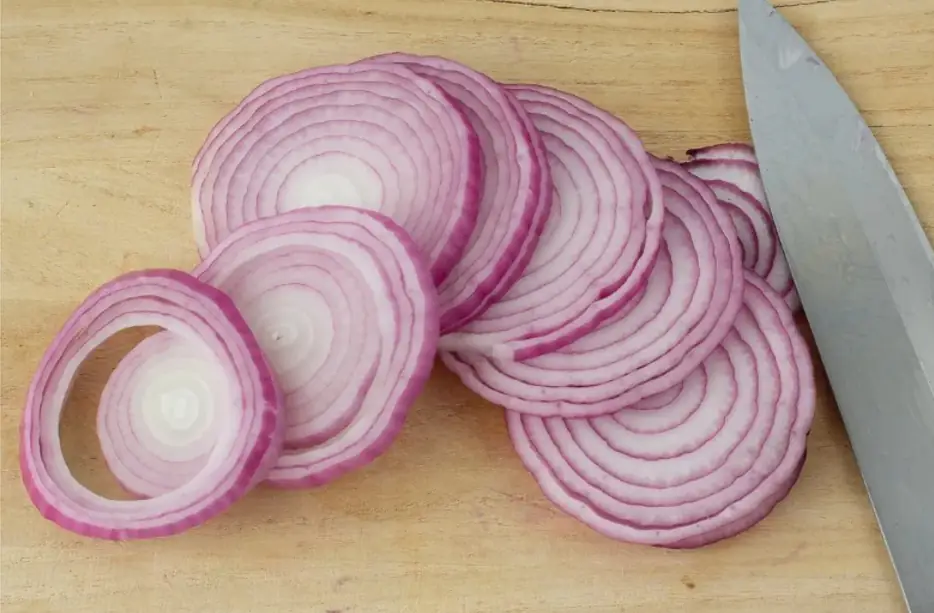
Possible Side-Effects
The best-known side effect of eating onions is their odor. It is not solely the mouth that gets the pungent smell: as your body breaks down various sulfur-containing compounds from this plant, your sweat and, consequently, your skin start to smell of it as well. (The very same mechanism works in the case of garlic and other sulfur-rich plants from the Allium genus).
In allergic persons and those with irritable bowel syndrome consumption of onion bulbs can cause heartburn, bloating, and flatulence. Owners of cats and dogs need to know that this plant may be poisonous to them (most often such poisonings happen when pets are given foods meant for humans). On the other hand, animals like goats, sheep, mice, and rats are less prone to onion toxicosis.
Health Facts about Onions: an FAQ
Here you will find the answers to commonly-asked questions about this plant.
How to Select and Store
Do not buy bulbs that have developed stems and/or decayed a bit. The bulbs you choose need to be hard and clean, and their skins be smooth and dry.
Store them in your pantry at room temperature. As a rule of thumb, red bulbs will last longer than yellow ones (their higher flavonoid content serves as a natural preservative), and white onions can only be stored for a short time.
What Are the Health Benefits of Red (Purple) Onion Variety?
Red (or purple as they are called in some countries) onions contain higher quantities of potentially beneficial bioactive compounds called flavonoids. In general, they are better for your health compared to yellow bulbs.
What Are the Health Benefits of Eating Raw Onions?
The immediate effect of raw bulbs is that they can kill harmful bacteria (like Staphylococcus) in your mouth and throat. Thus, onions (together with such natural antiseptics as garlic, ginger, and honey) can be used to prevent the common cold and flu.
The long-term effects of onion in your diet may involve protection from some types of cancer as well as lowering the risk of heart attacks and bone loss.
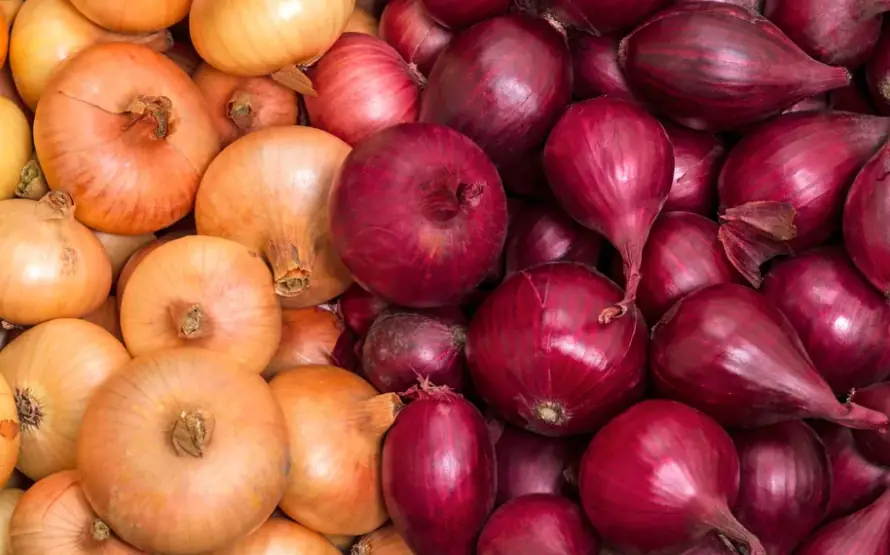
What Are the Health Benefits of Spring Onions?
Scallions that are also known as spring or green onions (as well as sweet-tasting white bulbs traditionally used in Mexican cuisine) have the lowest flavonoid content compared to their yellow and red botanical relatives. While this can be interpreted that scallions are not as good for health as other varieties, there is more to food than mere “beneficialness,” and scallions taste incredibly good in your salads, soups, and numerous other dishes.
What Are the Health Benefits of Onions and Their Juice for Hair?
Some people believe that applying onion juice to your scalp or using it to wash your hair can promote hair growth, restore its luster, and help you get rid of dandruff. While what are the real health benefits of such onion water is still unknown (there is only one small-scale study that supports claims that the juice of the plant helps hair growth), onion juice is used by some manufacturers for their shampoos and hair conditioners.
What Onion Powder to Choose?
If you don’t have enough time to get fresh bulbs for your salads and other dishes, dried and powdered onion can be a viable alternative.
Onion Powder by Simply Organic

- Organic
- 85 g (3 oz)
Now you know what are the health benefits of onions. Still, no particular type of food can be seen as a substitute for physical exercise and a balanced diet: all aspects of your life need to be healthy.